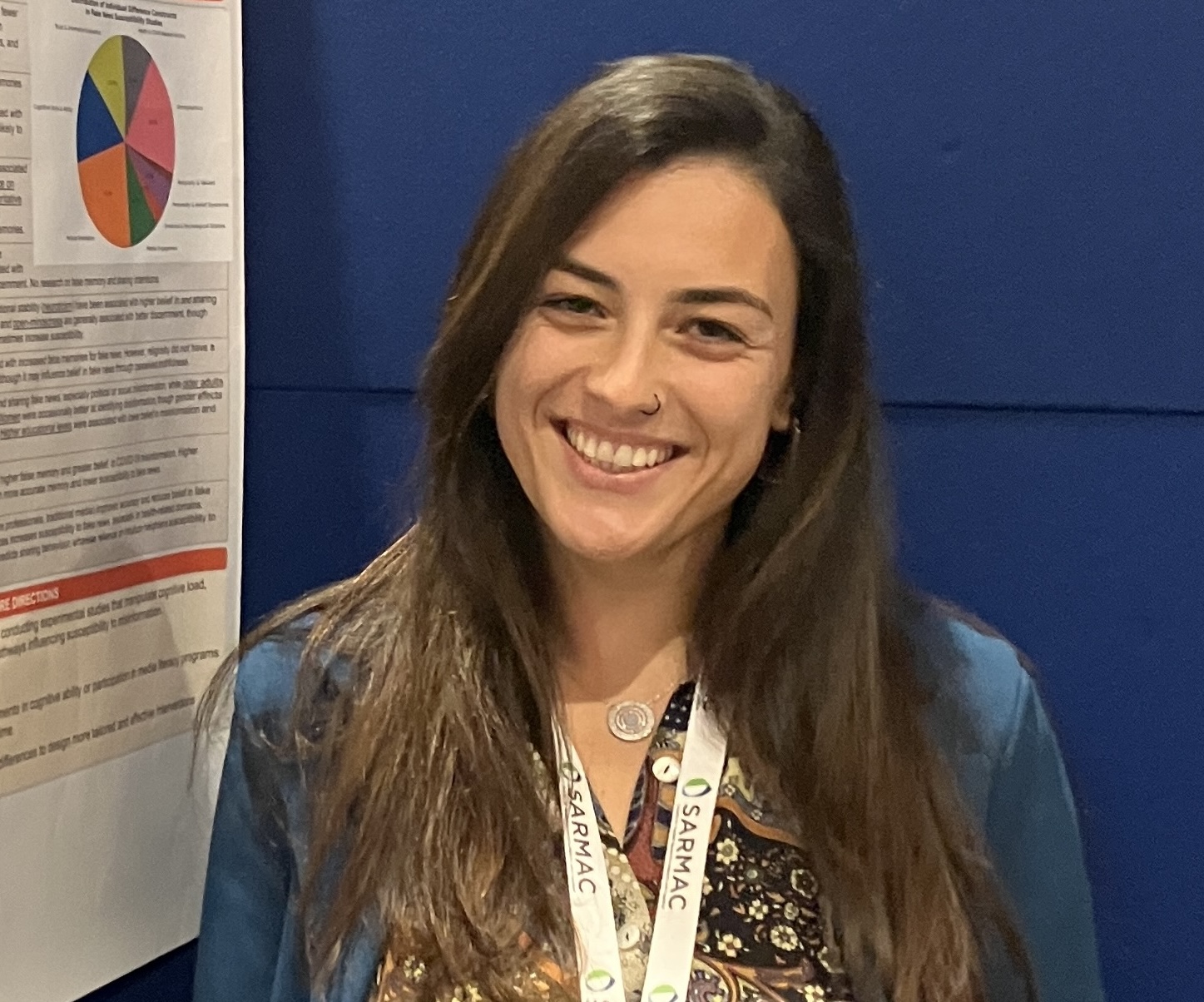World Food Day 2025: UCD researchers explore why we fall for fake food news
Thursday, 16 October, 2025

To celebrate World Food Day 2025 (October 16), we spoke to PhD candidate Alexandra Afroditi Asimakopoulou (pictured above) about the Edible Info project, which explores why we fall for fake food news and how we can build resilience to it.
What makes us believe a food story we see online - even when it’s not true? How can we ensure we are not duped by fake news about food - and what makes us more susceptible?
Exploring these questions is the Edible Info Project, led by UCD School of Psychology’s Alexandra Afroditi Asimakopoulou (pictured above) with colleagues Dr Ciara Greene and Dr Simona Grasso (UCD School of Agriculture and Food Science).
This interdisciplinary project looks at why some of us are more likely to believe misinformation about food, particularly when it aligns with our values and existing food preferences - be they vegetarian, vegan or meat-based.
Through carefully designed experiments involving over 600 participants, the research examined how emotional states and the tone of fake food news - whether positive or negative - shape our beliefs and memories.
Participants first watched a video with evocative images and music designed to change their emotional state, rating their emotions before and after to confirm this shift. Those taking part knew the experiment addressed sustainability but were not aware that the food stories they were shown were fake.
One example of a negative fabricated news headline was, “EU dossier reveals widespread use of banned growth steroids in poultry.” An example of a positive one was, “Irish farms collaborate to ensure safer meat processing standards.”
Results suggested meat-eaters reported false memories for or believed positive meat-related fake news more, while non-meat-eaters tended to believe negative meat-related news. Being in a ‘good’ or ‘bad’ mood did not make people more or less susceptible to food misinformation.
The work is supported by UCD Sustainability seed funding, helping to lay the groundwork for a larger programme investigating how repeated exposure to food misinformation might influence real-world eating choices.
As Afroditi explains, “We want people to become more aware of how their emotions and identities can influence what they believe - especially in a world full of food-related misinformation.”
This project aims to build greater awareness and resilience against misinformation — ensuring that what we eat and believe is based on truth rather than preconceived ideas, biases or emotional persuasion.
The next phase will explore whether exposure to food misinformation, especially repeated exposure, actually changes people’s behaviour (for example, their food choices). This will build on earlier work by Dr Greene who found that a single exposure to fake food news didn’t change behaviour; this study will test whether multiple exposures do.
This project is supported by Performance Funding from the Higher Education Authority (HEA).